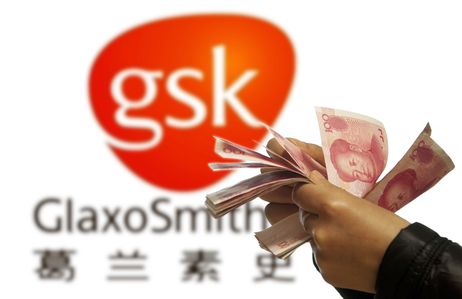Allegations that GSK systematically bribed doctors in China are credible, says Peter Humphrey, an investigator hired by the pharmaceutical giant.
Peter Humphrey was hired only to investigate who was behind a suspected smear campaign against GSK.
After he finished his report, the investigator learned the details of further allegations against the company and told colleagues he believed they were true.
The allegations against GSK’s China operation first emerged in an email in January 2013 from an anonymous and self-styled whistleblower to the company.
The email alleges that GSK’s sales teams targeted influential doctors with expensive gifts and cash to win business.

It also alleges that some doctors were sent on all expenses-paid holidays masquerading as conferences. The payments were funneled as fictional expenses through a travel agent.
Peter Humphrey’s company, ChinaWhys, was hired to try to indentify who the anonymous whistleblower was. GSK China suspected a former senior staff member, Vivian Shi Wen, who was dismissed at the end of 2012.
Vivian Shi Wen has previously denied being the GSK whistleblower.
Since the case came to light, four senior GSK executives have been detained by Chinese police and the former head of GSK China, Mark Reilly, is also effectively detained. Peter Humphrey will stand trial later this year for illegally buying and selling private information.
What is notable about the documents is not just the scale of the allegations against the company, but also the detail within them. The whistleblower’s email alleges that the company’s aggressive marketing strategies “constitute bribery in the vast majority of cases”. It further alleges:
- GSK falsified its records to conceal illegal practices including bribery and promoting the use of drugs for not yet approved purposes
- The practice of giving cash to doctors to sell products was common
- GSK fabricated an internal “compliance” scheme which effectively covered up widespread corruption
- GSK failed to investigate its entire sales team
The email names specific doctors and hospitals and also quotes individual GSK executives and their private email accounts.
GSK said in a statement that its own investigation had not found evidence to back the claims in the email.
“Our China business is now subject to an ongoing investigation by the Chinese authorities with which we are fully cooperating. We have also hired an external law firm, Ropes and Gray, to conduct an independent review into what happened in our China business during this period,” the statement said.
Bribery is widely believed to be endemic in China’s pharmaceutical sector, which has witnessed explosive growth in recent years.
While GSK has accepted that individual employees in China may have behaved inappropriately in China, it has consistently denied they acted on instructions of the company. If the company were found to be liable, it could face enormous fines from UK and US authorities who have fierce anti-bribery regulations.
